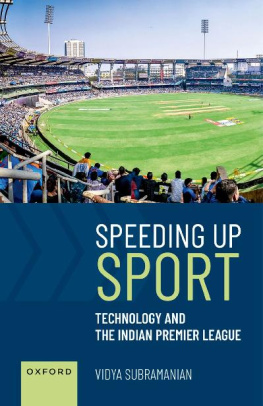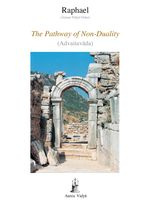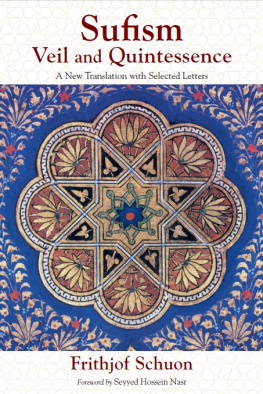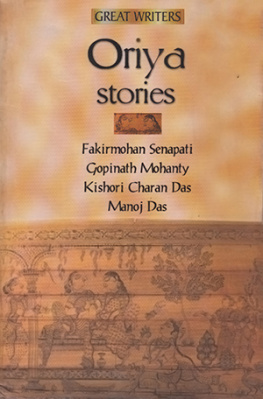S. Shankaranarayanan - Quintessence of Sri Vidya - Mahamanustava
Here you can read online S. Shankaranarayanan - Quintessence of Sri Vidya - Mahamanustava full text of the book (entire story) in english for free. Download pdf and epub, get meaning, cover and reviews about this ebook. year: 1969, genre: Religion. Description of the work, (preface) as well as reviews are available. Best literature library LitArk.com created for fans of good reading and offers a wide selection of genres:
Romance novel
Science fiction
Adventure
Detective
Science
History
Home and family
Prose
Art
Politics
Computer
Non-fiction
Religion
Business
Children
Humor
Choose a favorite category and find really read worthwhile books. Enjoy immersion in the world of imagination, feel the emotions of the characters or learn something new for yourself, make an fascinating discovery.

- Book:Quintessence of Sri Vidya - Mahamanustava
- Author:
- Genre:
- Year:1969
- Rating:4 / 5
- Favourites:Add to favourites
- Your mark:
- 80
- 1
- 2
- 3
- 4
- 5
Quintessence of Sri Vidya - Mahamanustava: summary, description and annotation
We offer to read an annotation, description, summary or preface (depends on what the author of the book "Quintessence of Sri Vidya - Mahamanustava" wrote himself). If you haven't found the necessary information about the book — write in the comments, we will try to find it.
Quintessence of Sri Vidya - Mahamanustava — read online for free the complete book (whole text) full work
Below is the text of the book, divided by pages. System saving the place of the last page read, allows you to conveniently read the book "Quintessence of Sri Vidya - Mahamanustava" online for free, without having to search again every time where you left off. Put a bookmark, and you can go to the page where you finished reading at any time.
Font size:
Interval:
Bookmark:
QUINTESSENCE OF SRI VIDYA
THE MAHAMANUSTAVA with INTRODUCTION, TRANSLATION AND NOTES by S. SHANKARANARAYANAN
(First Published in 1969)
***
PREFACE
The Mahamanustava is a remarkable poem among the writings of Sri T. V. Kapali Sastriar. Composed during his sixtieth year, it celebrates the glory of the Sri Vidya in which he had been initiated by his father when he was yet a boy. It records his whole-souled relation with the Deity and his continued gratitude to Her. For he always looked upon this original Mother of his adoration as responsible for all the subsequent rapid transitions in his spiritual Quest. His meeting with his first Guru, Kavyakantha Vasishtha Ganapati Muni, in the very presence of the Deity he was wor-shipping at the Tripurasundari Temple in Tiruvottiyur, his coming under the direct grace of Bhagavan Ramana Maharshi at Arunachala, and later his exclusive dedica-tion to the ideal and yoga of Sri Aurobindo and the Mother at Pondicherry, were realised by him as orderly steps guided by the benevolent Hand of the great Mother who first took him to Her bosom.
This poem is not a mere laudation of the Vidya, the Mother Creatrix. It dwells upon the significance of the Manifestation that is Sri Lalita-Tripurasundari, shows unambiguously the Path that leads to the Truth embodied by Her and the way to tread it. These features are indeed likely to be missed in the feast of poetic sound and sense with which the work abounds. Only an initiate admitted into the mysteries of the profound Vidya (discipline) can spot and delineate them in clear outline. And this sacred obligation has been ably discharged by Sri S. Shankaranarayanan who has had a fortunate and unique relation with Sastriar.
Sri Shankaranarayanan had been initiated into the worship of the Divine Mother by his grandfather even before he was ten and received powerful reinforcement to his inner aspiration from many quarters, but-he confessesthe living touch, the contact that vivified all practice and knowledge bequeathed to him, came from Sastriar. A new eye opened in him and with it a new world into which he takes the reader so effortlessly, so naturally. His intellectual clarity, luminous reason and the transparent sincerity of his soul vie with each other in the brilliant Introduction he writes to his translation of the Sanskrit verses. He has dived deep in the profounds of the poet-seer that is Sastriar and presented in a nut-shell the fundamentals of the ancient mystic discipline of Sri Vidya as renewed and relived in the life of the author. True knowledge unites. The Vidya that is cherished in this work establishes the oneness of Man, Nature and the Divine, both in essence and in expression, as shown by Sri Shankaranarayanan in his expository writing.
Sri Aurobindo Ashram, Pondicherry.
M. P. PANDIT
***
THE GREAT DISCIPLINES
Kasmai devaya havisha vidhemaTo which God shall we offer our oblations? queried the ancient seers. As long as one believes in a Divinity presiding over the manifold creation, what does it matter whether one worships this god or that god ? It matters much, the Tantra would say. There abound readily-responding entities in the subtle world, a low order of deities who gratify the aspirant with petty gifts, lull him into a false sense of progress and security and finally bring his ruin. There are benevolent deities who take the seeker on the path steadily and safely and ultimately do him the utmost good. There are gods and gods and the whole creation is teeming with them. In the pyramidal structure of the cosmos spreading over a rising tier of consciousness, these gods are posited in serried sequence. At the top, there are certain cardinal Godheads, so many facets of the One Truth, that correspond to the Brahman of the Upanishads. The spiritual disciplines, leading to such cardinal Deities are known as Brahma Vidyas. These are also popular as Maha Vidyas, the great paths of discipline or Siddha Vidyas, the practices where accomplishment is assured.
Where the Supreme is adored as the great Goddess, the Tantra classifies the disciplines leading to the cardinal Deities as Dasha Maha Vidyas, the ten great paths of knowledge. Coming third in the order of these Vidyas is Sri Vidya, leading to Mahatripurasundari, the Beauty par excellence in the triple worlds. The Vidyas of Tripura Bhairavi and Kamalatmika, the fifth and the tenth of the Dasha Maha Vidyas are also known as Sri Vidyas, as these deities have much in common with Tripurasundari. Here, we propose to deal with the Vidya of the great Goddess, known as Lalita, Tripura-sundari and Rajarajeshwari.
***
THE CULT OF SRI VIDYA
The cult of Sri Vidya is so comprehensive in its scope and so all-embracing in its nature that it is said to be the highest of all Mantra Sadhanas, Srividyaiva tu mantranam. Being a Mahavidya, it does the utmost good to him who seeks the Divinity through it. Knowledge is attained and even the proverbially fickle wealth can be acquired in a permanent form; and if one is deter-mined to reach the Supreme Goal, by Her grace, the Goal is attained ultimately
When a person is initiated in Sri Vidya, he may not be at the outset in a position to appreciate and under-stand the significance of the path that has come to him and its full implications. The Vidya takes upon itself the Sadhana. It educates him, gives him the knowledge at each step and grants him ultimately self-knowledge, by knowing which all this is known. Similarly, each desire of the seeker is taken up and worked out. Certain wants of the aspirant drop out as they are satisfied; some other wants vanish as they give place to higher wants. This process goes on till the aspirant learns to want only the Goddess and desire only Her Desire. In fact, the Tantra categorically declares that all and each cannot hope to step into the sacred precincts of Sri Vidya. It is exclusively reserved for the elite, for the man with a mission, for the man of destiny. So much so that strict secrecy is enjoined in order that the esoteric teaching may not fall in the hands of the profane. It should be kept secret like the immoral conduct of ones mother, svamatr jaravat gopya, says the Tantra in its picturesque language. One can give away ones kingdom, even ones head but not the sixteen-lettered Sri Vidya
Again, the ultimate goal of the Sadhana of Sri Vidya is Self-Realisation, the realisation of ones Self as the Goddess Herself. This is the culmination of all paths, the consummation of all transformations. After worshipping various deities, after pursuing various lines of discipline either in this birth or in previous births, by the dint of such practices, as a result of the grace of those deities, one gains entry into the sanctum sanctorum of Sri Vidya. Some are after the name of Siva, others are fond of the name of Vishnu but very few are conversant with the names of Lalita " says Lalita Sahasranama. After traversing many paths, this Royal Road comes into sight. After paying homage to the various deities in the ascending cosmic stair of consciousness, one is able to climb up and have a glimpse of this deity at the summit. By pursuing other lines of worship, one aspires to get the famous eight S iddhis as the culmination. ut ihese are the beginnings in the worship of Sri Vidya. In fact, these Siddhis are posited on the outermost periphery of Sri Chakra, which is considered as not different from the great Goddess and Sri Vidya. The Tantra clinches the issue dramatically by proclaiming that either one should be in his last birth or else one should be iva himself; only then can one get the fifteen-lettered Mantra of the Divine Mother.
This does not mean that the worshipper of Sri Vidya should arrogate himself to some sort of supermanhood. Rather the weight of the Divines choice should lay heavily on him. He should dedicate himself exclusively to the pursuit of the Vidya and make supreme effort for progress. If he misses the valuable opportunity given to him, he becomes a bhrashta, one who has fallen in his Sadhana. His progress is deferred for the time being and he has to make again the ascent which is not easy.
Next pageFont size:
Interval:
Bookmark:
Similar books «Quintessence of Sri Vidya - Mahamanustava»
Look at similar books to Quintessence of Sri Vidya - Mahamanustava. We have selected literature similar in name and meaning in the hope of providing readers with more options to find new, interesting, not yet read works.
Discussion, reviews of the book Quintessence of Sri Vidya - Mahamanustava and just readers' own opinions. Leave your comments, write what you think about the work, its meaning or the main characters. Specify what exactly you liked and what you didn't like, and why you think so.










